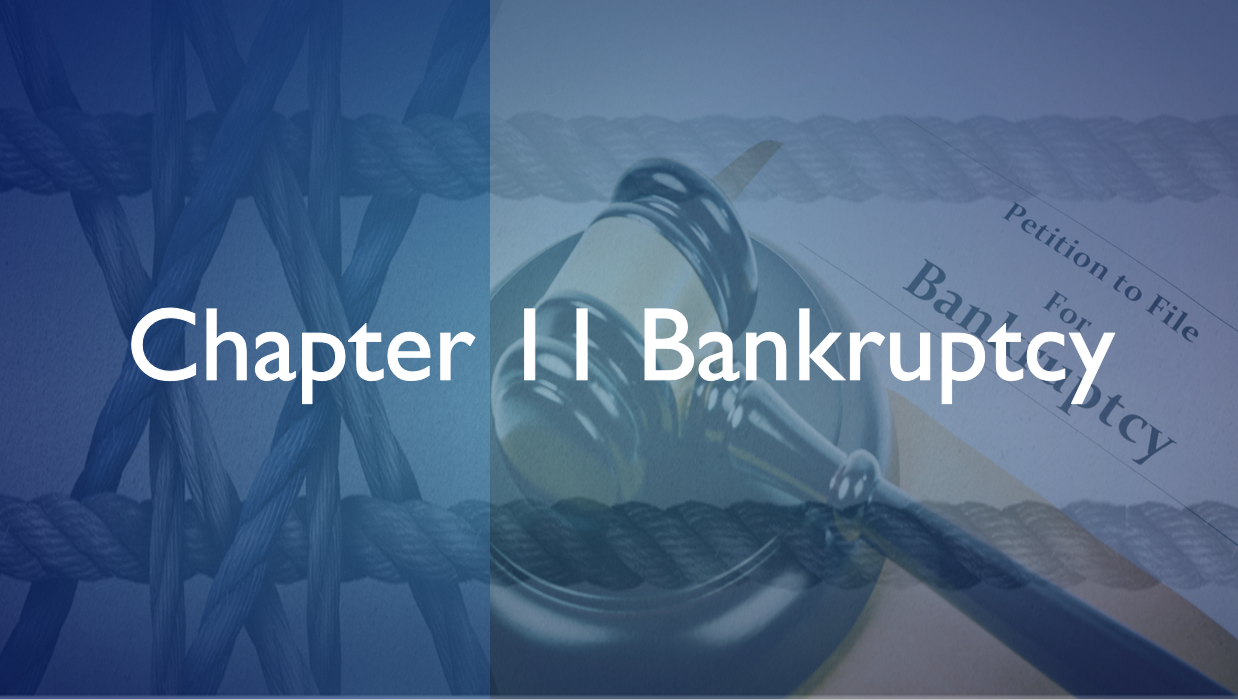The current COVID-19 pandemic is presenting numerous challenges for commercial tenants and will continue to do so even when the existing crisis is over. There will likely be an unprecedented number of bankruptcy filings in the near future. Landlords are facing pressure from their mortgage lenders to pay their mortgages, even when no rental income is being received from their own tenants. Those receiving stimulus payments from the CARES Act may find the amounts to be insufficient to meet ongoing expenses.
Lender Pressure⇒Landlord Demand⇒Commercial Tenants
Lender pressure for landlords to meet their mortgage obligations ultimately leads to landlords attempting to exert pressure on their commercial tenants for rental income. Although we stand united in our objective to eradicate the COVID-19 virus, that mantra is not always the case in creditor/debtor relationships. Many landlords are serving their tenants with eviction notices, which, in Florida, is a condition precedent to filing an eviction lawsuit. Whether this is merely a tactic to coerce rental payments, or whether the landlord intends to follow through with an eviction proceeding, commercial tenants need to be aware of the rights they have.
If a resolution between the landlord and tenant cannot be reached, bankruptcy is an option for commercial tenants who need additional time to pay their landlords. This is especially true in light of the recent changes to the Bankruptcy Code, which make the Chapter 11 bankruptcy process more sustainable for small businesses
Tenant Bankruptcy Basics
Chapter 11 bankruptcy is available to individuals and businesses and is a procedure whereby a debtor seeks to reorganize and restructure its debt. A Chapter 11 debtor with total debt of $7.5 million or less is currently entitled to file a streamlined Chapter 11 procedure, called a Subchapter V bankruptcy, under the recently enacted Small Business Reorganization Act.
1. The Automatic Stay
As soon as a bankruptcy petition is filed, there is an automatic stay on all collection activity. This stay prohibits actions by creditors, landlords and others to: (i) commence any judicial or other similar action against the debtor; (ii) exercise control over or obtain possession of property of the debtor’s estate; and (iii) create, perfect, or enforce any lien against property of the debtor’s estate or the debtor.
With respect to a commercial tenant, a Chapter 11 bankruptcy filing will prohibit the landlord from taking any action outside of Bankruptcy court to repossess the premises, with some exceptions. One such exception is that a landlord is not stayed and may seek to obtain possession with respect to a commercial lease that has terminated by the terms of the lease either before the commencement of the case or during the bankruptcy case.
For this reason, timing is crucial. A commercial tenant that wants to take advantage of the automatic stay must file bankruptcy prior to the termination of the lease. Many jurisdictions have ruled that a commercial lease is terminated upon the entry of a judgment of eviction.
2. Assumption or Rejection of the Lease
After the bankruptcy case is filed, there are certain strict deadlines that must be adhered to as far as what happens next with the lease. The Bankruptcy Code gives the debtor 120 days from the filing date to decide to “assume” (i.e. keep the lease and retain the benefits) or “reject” (i.e. terminate) the lease. The court may, for “cause,” give a debtor an additional 90 days to make such a decision. Any further extension beyond this 210- day period can only be obtained with the prior written consent of the landlord.
While the debtor decides whether to “assume” or “reject” the lease, the debtor is also required to pay the landlord post-petition rent, and such payments must begin within 60 days of the filing of the bankruptcy filing, unless the court extends that period for “cause.” Given the current COVID-19 pandemic, a debtor should be able to establish such “cause,” in the absence of bad faith.
However, there are ramifications to each decision. If the debtor wants to assume the lease, and remain in possession of the premises, the debtor must: (i) cure all defaults under the lease, including payment of unpaid pre-filing and post-filing rent, and applicable fees and costs due under the lease; and, (ii) provide “adequate assurance of future performance.” The Bankruptcy Code excuses the cure of certain non-monetary defaults, such as going-dark and other provisions.
Therefore, if the landlord is unwilling to extend the assumption/rejection deadline beyond the 210- day period, a bankruptcy court is seemingly powerless to provide a debtor with additional time. A debtor can disagree with the appropriate amount due under the lease but cannot forcibly reduce the monthly payment due under the lease by filing Chapter 11, if the debtor intends on remaining in possession of the premises.
Chapter 11 debtors may also be able to choose to assume and assign a lease, even if the lease has an anti-assignment provision. This will be an option when a third party intends to acquire some or all of the debtor’s business operations, or where the lease is below-market and the tenant debtor can obtain a monetary benefit from a third party willing to purchase the debtor’s rights under the lease. In order to assume and assign a lease, however, all defaults must be cured, and the third-party assignee must demonstrate adequate assurance of future performance under the terms of the lease. This prevents the assignment of a lease over the objection of the landlord to a non-creditworthy third party. The debtor/tenant needs to be aware of special “shopping center” provisions in the Bankruptcy Code provide landlords with further tools to prevent assignment of the lease where the proposed assignee would disrupt the tenant mix of the “shopping center.”

A Chapter 11 debtor can also choose to reject the lease. This will come into play where a debtor no longer requires the use of a particular location. When the lease is rejected, the tenant must vacate the premises and return possession to the landlord. A landlord and a tenant may, of course, mutually agree to reduce the monthly payment or otherwise modify the lease and keep it in place. Or, a landlord and a tenant may negotiate a new lease. Learn more: What Are The Duties Of A Chapter 11 Debtor?
Upon rejection and turnover, the tenant is no longer required to pay post-petition rent to the landlord. The landlord will then have an unsecured claim (in addition to any other claims the landlord holds) in the bankruptcy case for future rent required to be paid under the lease. This rejection damages claim cannot exceed the greater of the amount of rent due for one year or 15% of the rent due under the remaining term of the lease (not to exceed three years).
3. Suspension of Bankruptcy Proceedings
What if a debtor needs more time to decide to assume or reject the lease? Or, what if a debtor needs more time to cure any defaults? Some courts are employing a special section of the Bankruptcy Code, which allows a judge to “suspend” all proceedings in a case. In other words, the bankruptcy case is placed on “pause”. Some bankruptcy courts have already utilized this procedure during the current COVID-19 pandemic. However, an open question is whether this particular section of the Bankruptcy Code can serve to extend deadlines in a bankruptcy case that judges cannot ordinarily extend, such as the 210-day rule referenced above. Courts are still navigating through these open questions and it is unknown whether a “suspension” of proceedings can give a debtor additional time.
Strategies for Financially Distressed Tenants
Financially distressed tenants should always first maintain communication with their landlord, in order to work out a sensible solution. Most landlords are willing to work with their tenants, especially considering the current crisis. However, tenants must be careful. Here are some strategies for tenants to employ before considering a bankruptcy filing:
1. Avoid Personal Guarantees Where None Exist
While many leases require some kind of personal guaranty, some leases did not require a guaranty in the first place. To the extent no guaranty exists, you should be exceptionally cautious in not providing a new guaranty as part of any negotiation with your landlord.
2. Avoid Extending Personal Guarantees
The same holds true as to extending existing guaranties. By extending a personal guaranty, you are allowing for more financial obligations by providing the landlord with your personal assets to pursue should you eventually default
3. Avoid Extending/Shortening the Lease
Extending your current lease can incur more liability and shortening your current lease may result in termination of the lease before bankruptcy.
4. Analyze Whether the Lease is Above/Below Market
During this crisis, it may be difficult to determine the market value of the lease; however, you must determine if it is worth keeping the lease. If your rent terms are more than the market rent, then you definitely do not want to extend the lease and will need to negotiate better terms.
5. Keep up with Current Law and Guidelines
Due to the COVID-19 crisis, one must review current law and guidelines that may evolve or may restrict government funding, such as the PPP, from bankrupt companies seeking loans. Further, this crisis may affect prohibitions on commercial evictions and clauses within the leases themselves.
6. Other Strategies
Finally, trying to predict or be proactive is perhaps the best strategy. While the pandemic has brought uncertainty, preparing a bankruptcy strategy will get tricky and complex, especially if you accepted any funding from the SBA or any loans/grants.
Written by Roy D. Oppenheim, Esq. and Zach B. Shelomith, Esq.
If you are seeking legal representation, contact us online or give us a call at 954-384-6114 to schedule a consultation. We offer video chat and video chat and conference.
Oppenheim Law | Bankruptcy Attorneys
2500 Weston Rd #404
Fort Lauderdale, FL 33331
954-384-6114
Originally posted at: https://www.oppenheimlaw.com/bankruptcy-strategies-for-financially-distressed-commercial-tenants-during-the-covid-19-pandemic-and-beyond/























